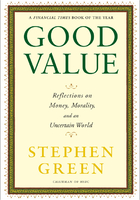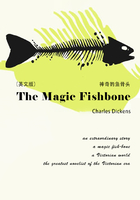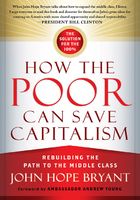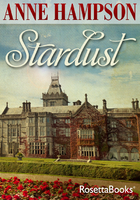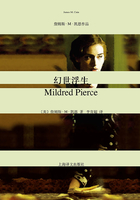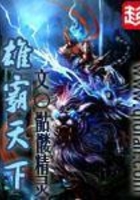Samuel Beckett began and ended his career with poetry. From Whoroscope (1930) to 'what is the word' (1989) is a lifetime's arc of writing. It was as a poet that the young Beckett launched himself in the little reviews of 1930s Paris, and as a poet that he would make his first breakthrough into writing in French. From the outset poetry was central to Beckett's work, from the abject majesty of the Leopardi epigraph to his book on Proust ('E fango è il mondo'; 'and the world is mud') to his lifelong engagement with Dante, Racine, Keats, H?lderlin and other favourites. 'The poem of poems', Beckett wrote in 'Recent Irish Poetry', 'would embrace the sense of confinement, the getaway, the vicissitudes of the road, the wan bliss on the rim', and even allowing for the critical tone here (Beckett is deprecating his Irish contemporaries), an oscillation between contrary states is a defining condition of his own work too. Beckett the poet alternates between expansiveness and concision, slapstick humour and Zen-like calm, claustrophobic trampings round Dublin and moments of blissful centrifugal escape. Escape not just from Ireland but the larger Anglosphere was a deeply felt need: Beckett translated Rimbaud, éluard and Apollinaire and served his time in the trench wars of Irish poetic modernism, forswearing Yeats but embracing neither Eliot's Christianity nor the emerging idiolect of Auden, MacNeice and Spender. 'Keep on the move,' Beckett writes at the end of 'Serena III', and it was a stylistic principle to which his poetry would cleave assiduously. Though his ambitions quickly overspilled any one genre, Beckett's plays and fiction are also full of poetry, from the polyglot doodles of Dream of Fair to Middling Women and the nonsense rhymes of Watt to Hamm's intoning of Baudelaire in Endgame and the dramatised versification of Words and Music. Beckett's work as a whole has never wanted for exegetes, but the poems remain a somewhat mandarin interest, attracting a band of advocates that has nevertheless included Michael Hamburger, Thomas Kinsella and Derek Mahon, while among composers Gy?rgy Kurtág, Morton Feldman and Marcel Mihalovici have all responded with musical settings.
Traditionally the Incipit of the Beckett canon, 'Whoroscope' was composed in 1930 as a last-minute entry for a poetry competition on the subject of time. The poem is spoken by Descartes, who has been employed by Queen Christina of Sweden to teach her philosophy; unfortunately for him, as a lifelong late riser, the classes are at dawn. Hence perhaps the abandonment of cool reasoning on the mind-body divide for the absurdist theatrics of Descartes sitting in the hot-cupboard 'throwing Jesuits out of the skylight'. The notes Beckett appends to the poem exploit the new-found freedoms of The Waste Land while simultaneously sidestepping Eliotian solemnity ('In 1640 the brothers Boot refuted Aristotle in Dublin'). A reference to Augustine proving God 'by exhaustion' provides an early example of 'the loutishness of learning' (in the words of 'Gnome'), contorting the unobliging universe into patterns of reasonableness and sense. Derek Mahon, otherwise one of Beckett's strongest admirers, finds the poem's parade of learning altogether too loutish. However, if 'Whoroscope' must finally be judged (in its own words) the 'abortion of a fledgling', it sets a tone of what Murphy calls 'eleutheromania', or rage for freedom, that Beckett will follow in his later poems and their more successful puncturing of the embryos of callow youth.
The young Beckett's keenness to emulate Joyce extended to wearing the tight-fitting, pigeon-toed shoes favoured by the older man; and to contemplate the punning style of 'Home Olga', an acrostic tribute to Joyce not included here, is to witness Beckett shoehorn himself into a style patently not his. The juvenilia published by Beckett in the 1930s secrete allusions like cuttlefish ink, behind which lurks a spluttering and inchoate poetic ego. The baroque glory of titles such as 'From the Only Poet to a Shining Whore' and 'Casket of Pralinen for a Daughter of a Dissipated Mandarin' is among the most striking things about these poems, which are probably best read in tandem with the exhaustive commentaries in Lawrence Harvey's 1970 study, Samuel Beckett: Poet and Critic.
A striking albeit exiled exception among the juvenilia is 'Yoke of Liberty' (originally 'Moly'), whose ceremonial vocabulary ('torn', 'grave', 'watchful', 'pitiful') links it to 'Alba' and 'Dortmunder' which were included in Echo's Bones, published in 1935 by George Reavey's Europa Press in Paris. From the biblical exhortation to 'the prone' in the opening poem, 'The Vulture', that they 'take up their life and walk', the volume's thirteen poems embark on a variety of journeys that, variously, go nowhere or reveal themselves as preludes to the funeral procession of 'Malacoda', written in deep grief for Beckett's father, who died in 1933 ('all aboard all souls / half-mast aye aye / nay'). While Beckett refused to authorise a reprint of More Pricks than Kicks until 1970, he was happy in later life to keep the poems of Echo's Bones in print; to Hugh Kenner, they seemed the only part of his early work for which Beckett still cared. At the time, though, the book passed almost without notice: 'five lines of faint damn in Dublin Mag', as Beckett lamented to Thomas MacGreevy, with the added insult that many of Beckett's friends, already familiar with the poems, refused to buy copies. 'Getting known', as Krapp declared, contemplating his 'seventeen copies sold'.
Beckett's hopes for Echo's Bones must have extended beyond a favourable review in the Dublin Magazine, but despite resigning from his teaching post at Trinity he still found himself, in the mid-1930s, more embroiled in Dublin literary life than can have been comfortable. His prose had so far failed to put the necessary distance between him and the hated littérateurs of Dublin pub life: Dream of Fair to Middling Women had been abandoned, More Pricks Than Kicks banned, and Murphy would endure dozens of rejections before its publication in 1938. The inducements to a little local score-settling were strong, and in 'Recent Irish Poetry', writing as 'Andrew Belis', Beckett launched a rollicking denunciation of his contemporaries. His prime targets are the 'antiquarians' still wedded to Gaelic revivalism in the age of modernist 'rupture of the lines of communication'. These include F. R. Higgins and Austin Clarke, soon to be pilloried as the hapless 'Austin Ticklepenny' of Murphy. The young Beckett was not one for nuance on the subject of Ireland and Irish poetry in the 1930s, and kept his raids on mythology studiously free of the Celtic 'fully licensed stock-in-trade' beloved of Higgins and Clarke. Though always an admirer of Jack Yeats, as both painter and novelist, Beckett also resisted the poetry of W. B. Yeats; evidence of his belated conversion to its merits can be found in Anne Atik's memoir How It Was.
The unpublished essay 'Censorship in the Saorstat' links Irish anti-intellectualism and sexual Puritanism. Sex is everywhere and nowhere in 1930s Ireland: writing to MacGreevy in 1931 Beckett complains of Seumas O'Sullivan sizing up his submissions to the Dublin Magazine for obscene anagrams. Erotic thoughts in the early poems lead to wallowing abjection ('girls taken strippin that's the idea') or hopeless sublimation. 'Sanies II' remembers Becky Cooper's brothel in Dublin's Railway Street (whither Belacqua makes his way at the end of the short story 'Ding-Dong'); the print of Henry Holiday's 'Dante and Beatrice' on the wall shows what fertile ground the Beckett narrator finds in these 'sites of rendezvous' for the Madonna-whore complex expounded in Dream of Fair to Middling Women. The French title used for a 1967 gathering of short prose, Têtes-mortes, refers to the leftovers from a process of alchemical sublimation, and in 'Alba' an ethereal woman bestows her grace from on high but utterly fails to ennoble the base metal of the Beckettian ego, or raise him up to her level. Where other poems from Echo's Bones rage hysterically against this impasse, 'Alba' achieves an oriental calm, with its lute music, silk and bamboo, suggesting careful study of Pound's 'Cathay' and the contemporary translations of Arthur Waley:
before morning you shall be here
and Dante and the Logos and all strata and mysteries
and the branded moon
beyond the white plane of music
that you shall establish here before morning
Several of the poems of Echo's Bones adopt Proven?al titles: a 'Serena' is a lover's song of anticipation, sung at evening, and the 'Alba' the song of the departing lover at dawn; 'Enueg' is the Proven?al for 'ennui'. Another gnomic title, 'Sanies', refers to a seropurulent discharge, and not without reason; Beckett's medical history for this period is one long catalogue of skin complaints, as though even at an epidermal level integration into his Irish surroundings was beyond him. The walker of 'Enueg I' launches into his trek round Dublin 'in a spasm', proceeding by a series of cinematic jump-cut transitions that remind us of Beckett's ambition in the mid-1930s to study with Eisenstein in Moscow. 'Enueg I' alternates between social realism and incantation, keen as ever to bundle the self offstage ('the mind annulled /wrecked in wind'), and ending with a quatrain transplanted from Rimbaud's 'Barbare'. A long poem of MacGreevy's from this period, 'Crón Tráth na nDéithe' (the Gaelic, roughly, for G?tterd?mmerung), employs similar tactics of modernist collage and fragmentation, but predicated on an investment in Irish nationalism which is simply lacking in Beckett, for all the rediscovery in recent decades of his previously undervalued Irishness. The poems of Echo's Bones are intensely claustrophobic, but while their Irish locales may appear inescapable (just as leaving the city is physically beyond the denizens of Joyce's Dubliners), their truest home remains 'unspeakable', in the formulation of the late text 'neither'. The urban peripatetics of Mercier and Camier and the post-war novellas, not to mention his kinship with Apollinaire's 'Zone', have their self-shredding roots in poems such as 'Sanies I'.
Robert Lowell found that John Berryman's work operated in a spin-cycle of 'prayer' and 'riot', and Beckett's critical pronouncements offer some perspective on his own wavering between the meditative and the unruly. Of Thomas MacGreevy he wrote in 1934: 'All poetry, as discriminated from the various paradigms of prosody, is prayer.' A review of Denis Devlin four years later makes the obscurantist counter-argument, advancing 'the vile suggestion that art has nothing to do with clarity, does not dabble in the clear and does not make clear'. Beckett's poems in English after Echo's Bones continue to thrive on authorial quarrels with the self, from the fulminating blasphemies of 'Ooftish' to the lovelorn cries of 'Cascando'. While the God the Father figure of 'Ooftish' greedily feeds on human suffering ('we'll make use of it /we'll make sense of it'), the disappointed lover of 'Cascando' looks to non-existence instead ('is it not better abort than be barren'). Neither poem uses any punctuation, so when 'Cascando' ponders 'last times […] /of knowing not knowing pretending', it is tempting to hear 'not knowing' as the Zen-like object of 'knowing', and of the wise passivity towards which Beckett's poetry increasingly gravitates.
1937 saw Beckett make his permanent home in Paris and begin to compose in French, in a sequence of twelve poems published after the war in Les Temps modernes. His usual practice after his adoption of French was to produce versions of new texts in both French and English, sometimes, as with Mercier and Camier, allowing decades to elapse before completing the task. His poetry is anomalous in this regard, as the bulk of his poems exist in only English or French. In the case of poems such as 'they come'/'elles viennent', it is not immediately apparent which, if either, of the two texts should be thought of as the original and which the translation. Depending on one's preference, Beckett has written one poem twice or two poems once. The Spanish edition of Beckett's poems responds to this by translating 'they come' and 'elles viennent' separately, enacting the poem's theme in a trilingual constellation of sameness and difference.
Esse est percipi, to be is to be perceived, according to Bishop Berkeley but the roles of observer and observed shift constantly in these poems, along with the limits of the unitary self that might underwrite them ('everything divides into itself', as Beckett writes in Malone Dies). A reference to Immanuel Kant contemplating the Lisbon earthquake suggests the seismic upsets Beckett has set himself to absorb, and it is hardly a coincidence that many of these poems end with an image of flight from upheaval and violence. 'Saint-L?' vibrates to the echoes of a more recent catastrophe, commemorating Beckett's work with the Red Cross in that devastated Normandy town after the war and watching 'the old mind ghost-forsaken /sink into its havoc'. If the self fragments in 'Arènes de Lutèce', in 'Rue de Vaugirard' he isolates a fugitive moment in time before peeling the self away from it like a photographic negative ('un négatif irrécusable'). Beckett does something similar in the lovely quatrain 'Dieppe', which he skims intertextually from H?lderlin's 'Der Spaziergang'.
The Unnamable, in the novel of that name, comes to believe that he is a tympanum, 'the thing that divides the world in two', and increasingly the French poems master the turmoil of the earlier work by reaching for a state of quietist in-betweenness:
my way is in the sand flowing
between the shingle and the dune
the summer rain rains on my life
on me my life harrying fleeing
to its beginning to its end
The end is in the beginning and yet we go on, though after the mainly French poems of the 1940s Beckett took an extended hiatus from poetry, even if his fiction and plays continued to feature poems (e.g. 'Song', from Words and Music). It is a notable feature of Beckett's later work that his fiction and drama begin to take on each other's characteristics (the stage-direction-style arrangement of the bodies in The Lost Ones and Imagination Dead Imagine, the fiction-like A Piece of Monologue, the appropriately named 'neither', written as an opera libretto), and by the time we reach his last poems we are dealing with texts that could be in any, or all of his genres.
Many Beckett plays isolate and detach the act of speech, most strikingly in the disembodied mouth of Not I, and an element of narrative extortion is an undeniable presence in later Beckett. Another aspect of his later work is the harnessing of speech to carefully choreographed movement, as in 'Roundelay' but also in late plays and prose texts such as Footfalls and 'The Way'. Chief among the late poems, however, are the mirlitonnades. These are described in an earlier John Calder edition (Collected Poems 1930–1978 (1984)) as 'written spasmodically on scraps of paper. Nothing dated.' While some of these poems were originally written on café bills and hotel notepaper, this is not the whole story: Beckett carefully copied and arranged the poems in the mirlitonnades 'sottisier' notebook now held by the Beckett International Foundation, University of Reading. If these poems are 'breathtaking glimpses of being and nothingness', as Justin Quinn has called them, they often take less than a breath to read aloud. At a minimum of as few as seven words, they are as carefully weighed as a Webern bagatelle, and come as close as anything Beckett wrote to honouring the ambition outlined in his 1937 letter to Axel Kaun to 'bore one hole after another in [language], until what lurks behind it – be it something or nothing – begins to seep through'. The mirlitonnades rank high among Beckett's late achievements, and do much to usher in the style of his late prose narratives (Company, Ill Seen Ill Said, Worstward Ho).
Beckett's poetic last word was 'what is the word', translated from the preceding French text 'comment dire' in the Tiers Temps nursing home in 1989. (The Faber Companion to Samuel Beckett reports that the poem was printed from Barbara Bray's computer, Beckett's 'word' processed at last.) And what is the word? the reader may wonder, mentally overstepping the mark and supplying the question mark the poem so noticeably lacks:
folly –
folly for to –
for to –
what is the word –
folly from this –
all this –
folly from all this –
given –
folly given all this –
seeing –
folly seeing all this –
this –
what is the word –
We can of course collapse the quest for the elusive Logos at any moment by deciding that the word in question is 'what', a suspicion licensed by the omission of the poem's otherwise ubiquitous, jabbing dash, in the final line, as though coming to rest at last: 'what is the word'. With fitting symmetry the French version, 'comment dire', contradicts any closure this reading threatens to provide by moving in the opposite direction, bogging down further and further away from the word it seeks ('comment dire – /comment dire'). Dragged in both directions at once by the English and French texts, we are delivered to a final resting place of precisely nowhere: 'unspeakable home' once more.
Where Beckett's publishing history is concerned, his post-war poetry publications are effectively a series of updated Collecteds with the unusual distinction of becoming less and less reliable as they go along, the multiply defective Poems 1930–1989 (2002) marking a low point in the history of Beckett editing. The rationale to the present Selected has been to take a fresh look at the poetry without pretending to the scholarly exhaustiveness promised by John Pilling and Seán Lawlor's forthcoming new Collected Poems in English and French. Nevertheless, some effort has been made to address the many anomalies that surround Beckett's uncollected and unpublished work. The mirlitonnades 'sottisier' contains a number of striking short poems, in both French and English, which post-date the publication of that sequence in 1978, and while Beckett made no effort to collect them in book form it would be wrong to see them as rejected by him; rather, they represent a partial further evolution of the sequence. Other marginal zones of the poetic ?uvre also yield unexpected rewards. Translations represent some of Beckett's finest poetic achievements. His version of Ernst Moerman's 'Louis Armstrong' for the Negro Anthology follows to an uncanny degree the poetic grammar of Echo's Bones. Beckett the non-self-translator is another matter again, and where his French poems are concerned the en face translations are by Beckett alone, with prose versions of poems untranslated by Beckett supplied in an appendix.
Beckett is a writer whose fiction and drama effortlessly attain the condition of poetry, and some of whose great work happens to be in strictly, or not so strictly, poetic form. While his three coevals lauded in 'Recent Irish Poetry' (Thomas MacGreevy, Brian Coffey and Denis Devlin) are often cited as evidence of a shared aesthetic, Beckett's insistence, contra nationalist canonisations of Jack Yeats, that 'the artist who stakes his being is from nowhere, has no kith' renders the concept of Irish poetic modernism as a shared front null and void. Beckett's poetry might just as fruitfully be compared to the Objectivist poetics of George Oppen or Lorine Niedecker and the later W. S. Graham. It is also important to keep a sense of French poets such as éluard, Char and Michaux as no less Beckett's contemporaries, while his early translation of Montale hints at elective affinities further afield too. More recent writers as diverse as Susan Howe, Mahon and Trevor Joyce have also learned from Beckett's poetry; and if this trio of names suggests the Irish context is not as easily disposed of as I may have hinted, there is always Watt's chastening reminder that 'for all the good that frequent departures out of Ireland had done him, he might just as well have stayed there'. Finally, though, admirers of Beckett's poetry find themselves in the peculiar position of wishing to rescue this work from the casual neglect of literary history while having to acknowledge that the deepest instinct of these poems is not to belong, in literary history or anywhere else. Ireland, the home place, any place, the self, language itself: on all Beckett passes the same impartial verdict of 'away dream all /away'. Yet will themselves away as they might, Beckett's poems cannot quite vanish as they go, but secrete themselves in their strange and compelling variety. Or as he writes in Malone Dies, 'the forms are many in which the unchanging seeks relief from its formlessness.'

